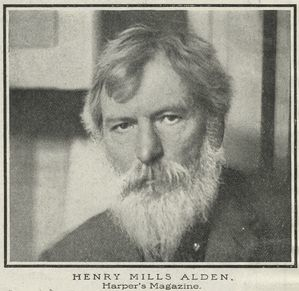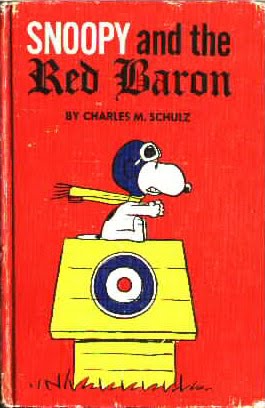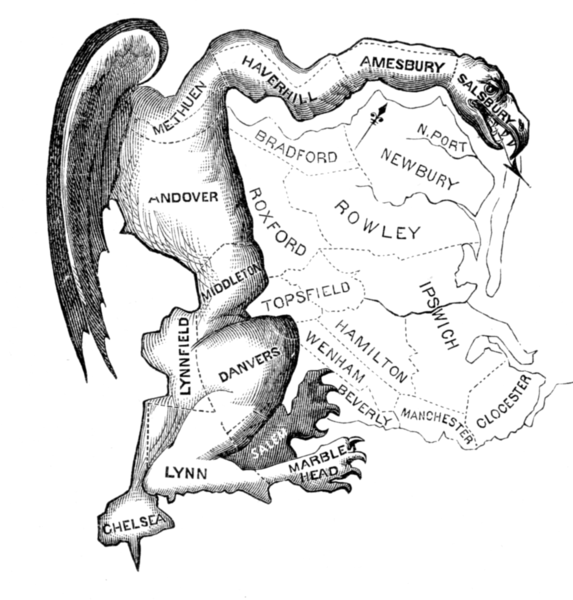In the Archives: Edgar Allan Faux (1877 then 1845)
They say humor is based on timing. Yes, as is everything else. Ask Elisha Gray about telephone patents. I was plugging along, working on a piece about the comedian Dana Gould, and still figuring out when I would finish writing about Mark Twain and the German language, when an article in my local newspaper caught my attention:
“Dead Poets Society founder visits 300th grave”
The fact that there’s an actual Dead Poets Society prompts visions of Ethan Hawkes’s teeth and an involuntary desire to kill Robert Sean Leonard. Swallowing my bile I learned that the current founder, Walter Skold of Freeport (Maine), has visited the gravesites of 300 poets “ahead of this weekend’s fourth annual Dead Poets Remembrance Day.”
What is “Dead Poets Remembrance Day”? Apparently, “with the help of 13 current and past state poets laureate,” Skold was able to dedicate October 7—“the day that Edgar Allan Poe died and James Whitcomb Riley was born—to heightening public awareness of the art of poetry.
The article posted October 5. That was Saturday. Making the actual memorial day a Monday. Today. My day to submit. So in honor of dead poets everywhere (and as one who writes the occasional verse and considers the artform dead, and therefore all practitioners the undead) let us examine the two poets tied to this day. What the article does not share is an appreciation for not just the day, but the year. On October 7, 1849, as Edgar Allan Poe lay dying of possibly drunken Rabies in a Baltimore medical college, James Whitcomb Riley was borning in Greenfield, Indiana.
In the Archives: Sprachen Studies (1917 then 1897)
So last month, when I recounted the recent Mark Twain Quadrennial, in Elmira, New York, I did not lie to you when I said my last name was a rarity outside of Brazil. But I might’ve misled. I’m not Hispanic. The name, phonetically confusing no matter the accent, originates from a very localized area in the Catholic part of Germany. Before social media made rabble of us all, my immediate network of genetic cognates stretched the length and width of America, but number well under forty (out of 313.9 million Americans without my last name). Once humans began twittering, a search for my surname generates hundreds of Andrés, Rafaels, Guilhermes, Edleides, and Gabriels. All of them write in Portuguese, and the best I can figure populated the Southern Hemisphere in the nineteenth century. Their ancestors did anyway. My ancestors begin with my great-grandfather, his wife, and my grandfather, barely a toddler in 1920, leaving Köln after fighting Americans for the Kaiser in the Great War. He set up his own machine shop outside of Boston, and began a tradition of not passing on family history to the next generation, and so in turn we know very little but apocrypha.
But apocrypha is a start. While we seek a connection with our distant Vaterland, all of us—North and South American—still sit under the shadow of a later holocaust with greater ethical concerns than the mobilized imperial reaction to the assassination of Franz Ferdinand in June 1914. Thankfully, none of us bear any of the guilt, even if there’s always the cinematic suspicion. For those of you too young to remember, Zie Germans were fun adversaries in popular media long after World War II and despite the atrocities committed on their own citizens. Hollywood couldn’t quit them as antagonists until 9/11 made clandestine sleeper cell guerrilla terrorism all the rage. Islamic extremists make for good long-form television, but not epic two-hour cinema. Meanwhile the pomp and circumstance of Nazi regalia still seems a popular attraction. And if the uniform gets a little thread-bare, Hollywood’s costume designers can go back a score and break out the Kaiser’s pointy helmets and Red Baron pilot goggles.
One Tan, Many Memories: Elmira Mark Twain Conference 2013
It was seven years ago. June 13, 2006. After watching the Mark Twain Forum rage for a week about a neocon skeleton’s consideration as the next Mark Twain, I offered no additional comment as my first contribution to the listserv, but a link (no longer active) identifying direct passages of her work lifted from others. I’m not controversial, just contextual. Within an hour I received an email from my father, copying my text with a forward:
Be careful what you say the walls have ears.
Long before the NSA, but steeped in George Orwell, I was dumbfounded. Not by the sentiment but the speed of reaction. Where did—How was—Who? My dad does not participate in socialist academia. He appreciates baseball, Goldwater republicanism, and the mafia (don’t ask)—all of them stoically. And John Wayne in one particular movie. That’s it. So whence came my inoffensive copy with such haste?
The answer came from mom—my father’s publicist—who revealed my network of expansive relatives connected an interest in Mark Twain with that of a family friend. My dad’s twin brother knew a guy named Larry. Larry grew up working in my grandfather’s tool and die preaching progressive reform during the summer of love while my father supported the Vietnam War with the Young Republicans. Larry was part of the Forum, recognized the last name—a rarity outside of Brazil—and forwarded the message to my uncle with a “Hey, is he one of yours?” My uncle turned it around to my father, and suddenly I was worried about over-sharing.
Clearly that didn’t last. I cut out the middlemen and contacted Larry, and thus began a three-year direct correspondence about Mark Twain that finally put a face to liberal sentiment when we both attended the Sixth International Conference on the State of Mark Twain Studies, held in Elmira, New York.
Spectaculum Horribilis
Vacations are meant to be relaxing. Swim, sun, cook, drink, rinse, repeat. Due to personal and professional deadlines my vacation went more like: clean, trash, write, apply, review, request an extension. Between submitting for publication, looking for new employment, refinancing the house, and running an amateur wrestling clinic for small children out of my living room, I found enough time to scribble a few thoughts on humor, drink unwatered whiskey, and beg for a quick death between the hours of 11pm and midnight before it all began again the following day.
Few and far between do I ever find the emancipated evening, like my pass to the local class on voice acting I mentioned last time. If you’re the type to follow links in an online article like E. T. tracking Reese’s Pieces (timely I know), then your detective work discovered my town of residence. Salem, MASS. There are a lot of Salems in the United States, but only ours burned witches so their descendants could sell cheap gimcracks that turn tragedy into novelty. History is ripe for humor, and when that humor becomes routine, the resulting tradition can be called horrible.
Or rather, Horribles. The Ancient and Horribles Parade is a fading New England tradition that sounds a lot like a lottery in Shirley Jackson literature. “We’ve always had a parade!” some old codger mutters before throwing a rock at the chosen sacrifice. Similarly, the parade stretches back into forgotten memory, where many claim its origin but no one really knows when exactly. But they do know what and how. Usually on or around July 4, a community informally gathers to lampoon people in the public eye as a supplement to the formal celebrations sponsored by the government on our day of independence. Like Gerrymandering, the North Shore above Boston also made the event a political device, “whereby the speaker argues against taking a certain course of action by listing a number of extremely undesirable events which will ostensibly result from the action.” But why speak of politics when it can be satirized?
- I live in the left leg
A Blanc Slate
Last week I took a class called Getting Paid to Talk: Making Money with Your Voice. I had never seen this class in our local Parks and Recreation catalogue—usually dedicated to Acting for Youngstars! or Wine Glass Fun. As the title bordered on George Carlin’s superfluous redundancy, I wanted to attend, but could not commit until that day, as children have a habit of ruining the best-laid plans.
I was a child when voices first captured my attention. Yes, I get we all were children when first fascinated by speech, but my concern was delivery. Daffy’s lisp, Porky’s stutter, the Kentucky drawl of Foghorn and da Brooklyn cant of Bugs. I grew up with Looney Tunes the way American education used to teach rhetoric, before it gave up. We watched Disney movies at the Rec Center—a different Rec Center, not the Wine Glass Center—back when video stores were not yet born now long dead, and cable included the cord connecting your TV to thirty-seven possible channels. The only thing on demand was our need to be specific places to watch specific things when other people did the same. The images caught our attention, but the voices kept it. Every one was distinct, and many times they had to be to help differentiate the characters. These products began in an age of radio, when actors used their talents aurally, because they could not offer an audience (Audio, Audire, Audivi, Auditus—to hear) any talents visually.
[Title to Follow]
I have a friend who takes Saint Patrick’s Day very seriously. His extended family gathers on the weekend nearest March 17 to trade sarcasms and drink alcohol. They boil meat on the Massachusetts shoreline, and balance small talk with cruel reminders of past grievances until whiskey favors one end of the scales. Still, the older members of the clan can cover up scandal, debating sports while training the next generation in table games using root beer instead of the hopped variety for everyone under age. But what is under age? It’s up to them. Pretty standard for Jews.
Not really. They’re Irish. Of course they’re Irish. I’m Irish too, but not that Irish. None of us are Jewish, but the contradiction in ethnic stereotypes makes it funny, and necessary to present my title here instead of above: The Jewish Comic and the Irish Muse. Anything sooner would’ve altered the chemistry of the anecdote, and like a good bartender, a storyteller must know the order of ingredients to deliver their greatest effect, and repeat when necessary. Make it a double.
In the Archives: Thomas Nast and Santa Claus (1862-1890)
I can remember my first scholarly thought. Well, I should say that I can visualize the context of my first scholarly thought. Like a Polaroid of a younger me looking through a View-Master: I know that I saw something, and how, but can’t remember what.
I can almost replicate the place from memory, but will never replicate the time. Heraclitus, who was smarter than the average Greek, once wrote fragmentedly, “You cannot step into the same river, for other waters and yet others go ever flowing on.” True, but the Greeks widely preached the maxim to “Know Thyself,” and I remember helping my grandfather once, and being rewarded with a copy of Mark Twain’s The Adventures of Huckleberry Finn.
To be precise it was The Annotated Huckleberry Finn, edited by Michael Patrick Hearn, copyright 1981 by Clarkson N. Potter, republished by Norton & Company. When my grandfather gave me the book it was still new scholarship, and I was no scholar, but the text fascinated me. Densely illustrated, the Potter edition uses marginalia to communicate the context of both the novel and Hearn’s Introduction like an analogue prototype for the internet. I was a babe in the woods, looking through the first book I ever owned that did not involve talking animals or a young sleuth by the name of Encyclopedia Brown. I was proud that someone thought me ready for such an impressive text, but make no mistake, the pictures helped. As a child I was not a strong reader, but I was wildly artistic. And the first page I opened had a caricature of two men, in nightgowns, with nineteenth-century facial hair, collecting clocks.
I don’t think I can reproduce it here for legal purposes, but Roman numeral lvi (56) of the Norton edition will show you the two figures identified as the authors George W. Cable and Mark Twain, drawn by Thomas Nast, on Thanksgiving, 1884.
There was no other description behind the cause of their act, collecting clocks at five before midnight, besides: “The two spent Thanksgiving at Thomas Nast’s home in Morristown, New Jersey.” I cannot fault Hearn’s lack of insight, because it sparked the first real academic inquiry in my young mind: What the hell is going on?
I can tell you that later I learned:
On Thanksgiving Eve the readers were in Morristown, New Jersey, where they were entertained by Thomas Nast. The cartoonist prepared a quiet supper for them and they remained overnight in the Nast home. They were to leave next morning by an early train, and Mrs. Nast had agreed to see that they were up in due season. When she woke next morning there seemed a strange silence in the house and she grew suspicious. Going to the servants’ room, she found them sleeping soundly. The alarm-clock in the back hall had stopped at about the hour the guests retired. The studio clock was also found stopped; in fact, every timepiece on the premises had retired from business. Clemens had found that the clocks interfered with his getting to sleep, and he had quieted them regardless of early trains and reading engagements. On being accused of duplicity he said: “Well, those clocks were all overworked, anyway. They will feel much better for a night’s rest.” A few days later Nast sent him a caricature drawing—a picture which showed Mark Twain getting rid of the offending clocks. (Mark Twain, a Biography, vol. II, part 1, 188)
But all this postdates my first academic thought. Before I knew Huck, Jim, the Mississippi River, or the author who sent them down it. I saw a picture and knew the name of the man who drew it. Thomas Nast. I remember I wanted to know more, and now I can share some of it with you, in context.














